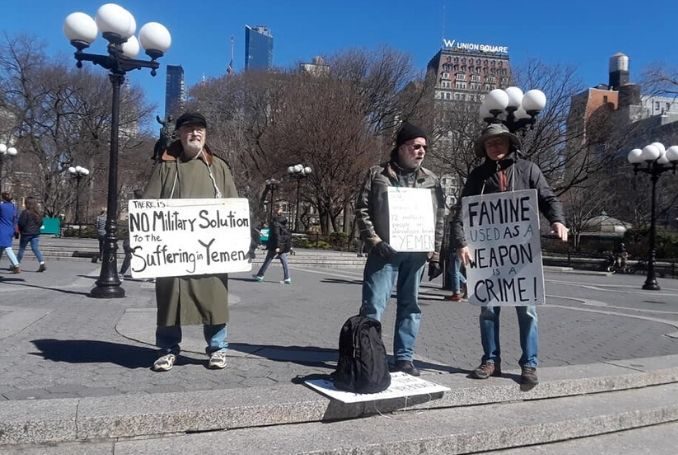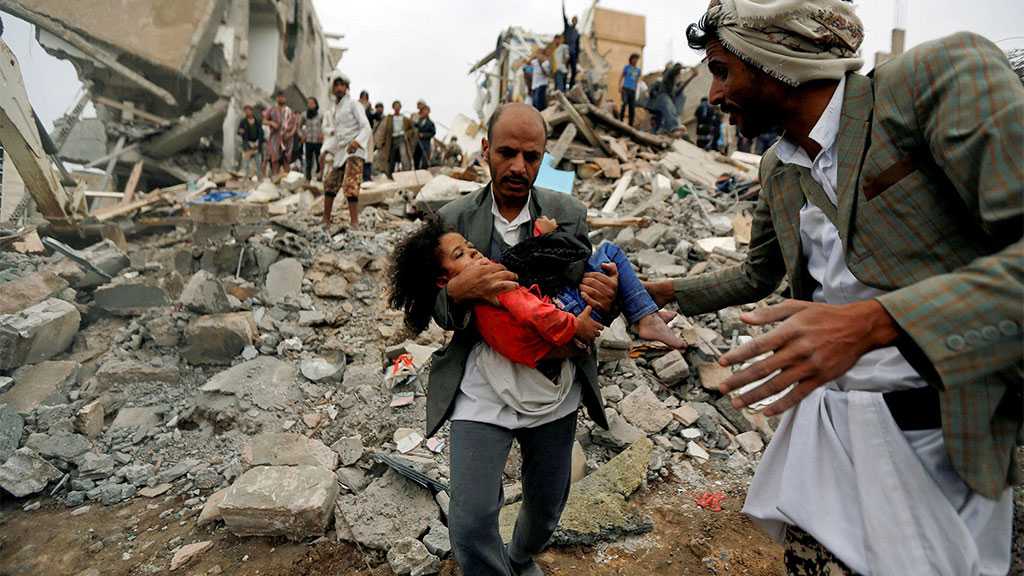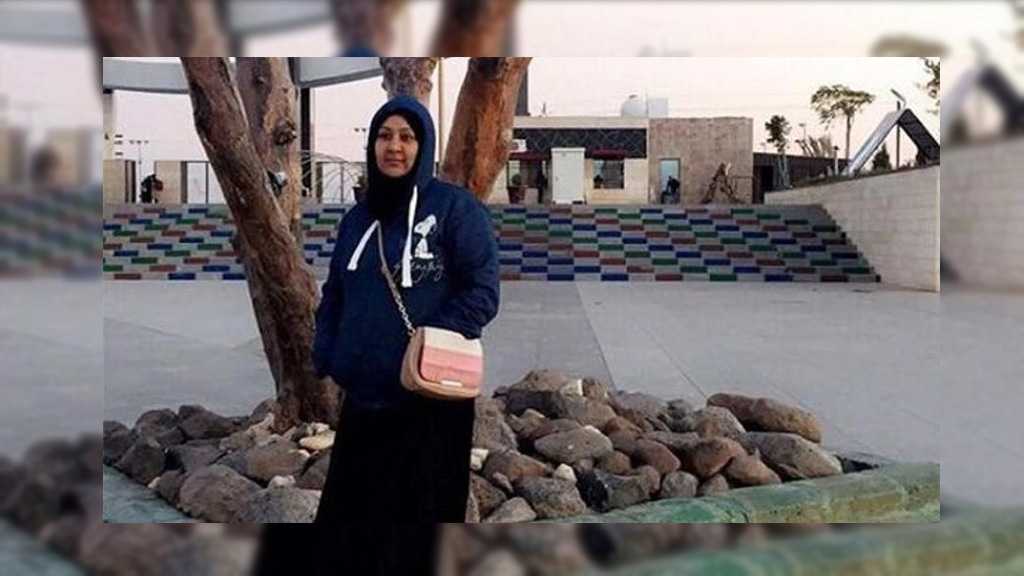March 23, 2018 / Gilad Atzmon

By Paul De Rooij
One must marvel at the first few paragraphs of Amnesty International’s recent press release:
“The international community’s catastrophic failure to take concrete action to protect the people of Syria has allowed parties to the conflict, most notably the Syrian government, to commit war crimes and crimes against humanity with complete impunity, often with assistance of outside powers, particularly Russia. Every year we think it is just not possible for parties to the conflict to inflict more suffering on civilians, and yet, every year, they prove us wrong…
Right now, in Eastern Ghouta 400,000 men, women and children, who have been living under an unlawful government siege for six years, are being starved and indiscriminately bombed by the Syrian government with the backing of Russia. […] The international community had said ‘never again’ after the government devastated Eastern Aleppo with similar unlawful tactics. But here we are again. Armed opposition groups have retaliated by indiscriminately shelling two villages in Idleb, which they have also besieged since 2014.” [1]
This is an unambiguous call and a justification for war; it seems that AI is calling for a NATO bombing campaign similar to the one staged in Libya in 2011. There is also no ambiguity as to who AI deems to be culpable and ought to be at the receiving end of a “humanitarian bombing” campaign. Before cheering yet another US/NATO war, it is useful to analyse Amnesty International’s record in assisting propaganda campaigns on the eve of wars. It is also worthwhile reviewing AI’s reporting on Syria, and how it compares with that on other countries in the area.
A sorry record
It is not the first time that Amnesty International has played a role in a propaganda campaign in the lead up to a war. A few examples:
Before the US invasion to ouster the Iraqis from Kuwait, president George Bush Sr. appeared on TV holding an Amnesty International report claiming that Iraqi soldiers had dumped babies out of incubators. That was Amnesty International’s willing participation in spreading a hoax — a hoax fabricated by a major American PR company.
In the months prior to the US-NATO attack on Serbia, Amnesty-USA put two Croatian women on a ten city-speaking-tour to project their account of their “rape-camp” ordeal — in reality one of them was a top Croatian propaganda official, a close advisor to president Tudjman, who was also known for her acting abilities.[2] Again, this hoax was pushed by a major American PR company.
AI’s coverage/non-coverage of Israeli mass crimes also deserves to be analysed.[3] In this case, Amnesty plays a role in adulterating and reducing criticism after wars or the misery caused by its continuous occupation and abuse of the Palestinians (discussed below). Amnesty International-Israel served as a propaganda front busy manipulating “human rights” reports to suit Israel’s interests.[4] AI-London has not commented on the manipulation by its Israeli siblings.
In 2012, Amnesty erected advertising posters in the US applauding NATO’s actions in Afghanistan — “Keep the progress going”, purportedly doing something for women’s rights. This was merely crass pro-NATO pro-interventionist propaganda. [5]
Amnesty-France was instrumental in propagating anti-Libyan propaganda prior to the NATO bombing of the country in 2011.[6]
Alas, Amnesty’s sorry record is much longer than these few examples indicate.
Not anti-war
One would expect a human rights organisation to be intrinsically opposed to war, but AI is a cheerleader of so-called humanitarian intervention, and even “humanitarian bombing”.[7] In the past, when queried about its equivocal and lame statements about wars, an AI official stated that “Amnesty International is not anti-war”. Even with this predisposition AI was honoured with the Nobel Peace Prize – yet another undeserving recipient for a prize meant to be given only to those actively opposed to wars. In Syria’s case, AI has given up this phoney “not anti-war” stance for one that is actively advocating war. Notice that it uses a rather dubious argument about “never again” about standing by in the face of mass crimes; in reality this is an appeal to holocaust memes meant to favour this war.
Syria today…
The Syrian government is presently rolling back the jihadis who had managed to establish themselves in an area next to Damascus. No government would tolerate to have a section of their capital city under jihadi control, an area from which the rest of the city is mortared, and an area vital to control the water supply of the city. What would happen if jihadis took over Arlington, VA, and used it to bomb the center of Washington DC? The response would be self-evident. For some reason AI doesn’t bestow this right of self-defence to the Syrian government, but instead refers to an “unlawful government siege [of Ghouta] for six years”. This is laughable.
It is remarkable to find that in none of the latest press releases or reports does AI discuss the nature of the armed groups fighting in Syria. Even those referred to as “moderates” by Washington are a rather unsavoury bunch. Most of them are foreign jihadis; a good portion of them are Saudis. (NB: Saudis offered political and criminal prisoners a way out of jail on condition of going to fight in Syria.) And they are armed/trained/financed by the US/UK/Saudi/Emirates/Turkey/Qatar… to the tune of at least $12 billion. The former US ambassador to Syria stated that the US contribution was at least $12bn [8]; this figure excludes the funds provided by the Saudis and other regimes in the area. Gareth Porter reports that the quantities of weapons supplied to the jihadis were enough to equip an army. [9] Yet, this armed gang of jihadis is barely mentioned in Amnesty’s assessment of the situation in Syria. In Ghouta, the jihadis belong to the Nusra front (or one of its rebranded versions), that is, a group with an extreme ideology; they are an Al-Qaeda offshoot. AI’s press release doesn’t mention this salient fact.
Amnesty portrays the Syrian government as at war against its own people — and Aleppo, Ghouta, etc., under siege; and not allowing the population to escape. Although AI similarly condemned the liberation of Aleppo, it didn’t interview these victims after the fact. If it interviews someone — invariably anonymous — it intones sinister fears of the government. For all its faults, the government has popular backing, and it stands in the way of a jihadi project to carve up Syria and ethnically cleanse it.
And there is a double standard
When it comes to Israeli mass crimes AI is rather cautious in the language used and in its recommendations. It is rather coy in mentioning “war crimes” and “crimes against humanity”, and reference to the latter is virtually non-existent or couched in exculpatory language (favourite cushioning words: “alleged”, “could be construed as”). While it sparingly uses these accusations against Israel, it levels the same accusations against Palestinians — it applies a notion that there are crimes “on both sides”. AI’s harshest admonishment is that Israeli actions are not “proportionate”. There are no appeals to the “international community” which should not stand by, “never again…” One wonders what Amnesty has to say about the Israeli siege of Gaza, where the population has been put “on a diet” causing a dire situation for about 1.8 million people today. In this case, there are no reports, no calls to the “international community” to do anything, no accusations of “crimes against humanity”… AI uses another script altogether.
In the current press release, AI unambiguously states that both Syria and Russia are committing war crimes and crimes against humanity. And if this is the case, there is an obligation for other states to act, to intervene. AI is not requesting an investigation, it is urging intervention.
While in the Israeli case AI states that crimes are committed on both sides, when it comes to Syria it is only the Syrian government that is deemed culpable. It is difficult to remove entrenched well armed jihadis who use residents as human shields. Jihadis dig themselves in and around hospitals and schools [10], and when action is taken against them there, the likes of Amnesty utter their clucking sounds.
In its latest statement AI states: “It must also send a strong message that those responsible for war crimes and crimes against humanity will be held accountable, by referring the situation to the Prosecutor of the International Criminal Court.” Fair enough. In 2002, Donatella Rovera, an AI researcher on the Middle East, was queried about why AI didn’t make a similar demand to hold Israel accountable at the ICC or ICJ, and she stated that AI didn’t make such demands.[11] Another standard applies.
An issue about sources…
Amnesty reports several statements made by residents of Ghouta, all giving harrowing accounts of the conditions on the ground. But all the statements blame the government for their predicament. “Like many Syrians, the humanitarian worker expressed deep distrust of the government.” Or “We hear rumours of reconciliation but that can never happen. The government hates us…” And other such unverifiable statements. And who exactly is reporting this? Does AI have a direct line to the “White Helmets”? All Amnesty has to do is compare the statements made before the liberation of Aleppo and the opinion of the residents now. If the residents are pleased with their condition without the jihadis around, then this should be sufficient to question the dubious statements originating from anonymous sources in Ghouta today.
Other examples
Amnesty International doesn’t want you to respect the Syrian government. Reviewing its press releases about Syria, it is all one-sided; the jihadis hardly merit a meaningful rebuke. But no report was as distorted as its multimedia presentation of the purported abuses in the Saydnaya Prison. Here Amnesty’s methodology was on show: accept hearsay, magnify it melodramatically, extrapolate and exaggerate [12]. This is not human rights reportage, it is crass propaganda. The timing of all these so-called reports is also dubious. On the eve of major reconciliation talks or negotiations, Amnesty publishes a report portraying the Syrian government as beyond the pale. Would anyone want to negotiate with such a party? The timing of several other AI reports coincide with attempts to resolve the conflict via negotiations. The timing of its latest press release coincides with a major Syrian government offensive into Ghouta — and portraying it as criminal in nature.
Human rights are not neutral
Harvey Weinstein, the sexual predator, made Amnesty International USA possible — he provided the funds necessary to establish the organisation. [13] Weinstein didn’t put up the funds because he fancied AI’s lovely researchers. People put up funds for such organisations to shape the way abuses and crimes are reported. In Weinstein’s case, his ardent devotion to Israel might explain his financial contribution to Amnesty USA. Amnesty is also a conduit to push propaganda desired by those who foster such organisations. The very nature of “human rights”, its very flexible nature, lends itself to prime manipulation.
A Syrian furniture salesman based in Coventry, a small city in the UK, runs the Syrian Observatory for Human Rights (SOHR). Sitting in his living room, he produces reports about the latest atrocities, chemical attacks, and every other sordid detail to tarnish the Syrian government’s image. He reaches his mysterious sources by phone, invariably someone hostile to the Syrian government. The output of this one-man-band is then used by the BBC, CNN, The Independent, The Wall Street Journal,… and major media outlets to report on the situation in Syria. It is expensive for news organisations to have correspondents on the ground, it is dangerous; so what is better than “human rights” reports obtained for free! And does Amnesty International rely on SOHR? At least they should footnote their reports.
The main playbook
The US and some of its sidekicks have for decades been engaged in regime change in the Middle East, Eastern Europe, Latin America… The usual formula for this is to create civic organisations, e.g., Journalists’ union, Lawyer and Jurist guilds, select Labour unions… and human rights organisations. These people are then trained to exercise political power effectively by staging mass demonstrations, manipulating the media, spreading rumours, disrupting the government — all the way to the take over of parliaments. These are the so-called “colour revolutions”. They tried this in Syria, but opted primarily to arm and organise jihadis. The jihadis are backed by a propaganda machinery, and the US is conducting the largest disinformation/propaganda campaign in Syria today [14]. The essence of the campaign is to tarnish the image of the Syrian government, robbing it of its international legitimacy and support. Human rights reportage is essential to this campaign. By analysing Amnesty International reportage, it is evident that it is part of this campaign; it has weaponised human rights.
Currently there is a major buildup of US warships in the Mediterranean; and the Russian general staff fear that Syria will be the target of a major cruise missile attack.[15] Possibly, Russian forces will also be targeted. Couple this with the unprecedented black propaganda campaign against Russia in the US and the UK, and it seems very likely that a major shooting war is in the offing. Given that AI has lent itself in previous propaganda campaigns on the eve of wars, one finds that the latest Amnesty International report is merely a leading indicator for such a war. Amnesty International is embedded in a propaganda campaign — it will be cheerleading with blue and white pompons when the humanitarian bombs fall.
Source: https://www.counterpunch.org/2018/03/23/100699/
Endnotes
[1] AI, “Syria: Seven years of catastrophic failure by the international community”, 15 March 2018.
[2] Diana Johnstone, Fools Crusade, 20 Sep 2002. Johnstone documents the curious case of Jadranka Cijel. NB: AI was alerted to the fact that the accounts by the two women were questionable; it proceeded with the tour anyway.
[3] I have written quite a few articles about Amnesty for Counterpunch. The latest: Amnesty International: Whitewashing Another Massacre, CounterPunch, 8 May 2015.
[4] Uri Blau, Documents reveal how Israel made Amnesty’s local branch a front for the Foreign Ministry in the 70s, Haaretz, 18 March 2017. Neve Gordon, Nicola Perugini, Israel’s human rights spies: Manipulating the discourse, Al-Jazeera Online, 22 March 2017.
[5] Ann Wright and Coleen Rowley, Amnesty’s Shilling for US Wars, ConsortiumNews, 18 June 2012.
[6] https://www.youtube.com/watch?v=6RnxJ6TvFZ0&feature=youtu.be Also: Tim Anderson, The Dirty War on Syria, Global Research, 2016.
[7] Alexander Cockburn reports that Amnesty was present during a US State Department briefing seeking to justify “humanitarian bombing”. How the US State Dept. Recruited Human Rights Groups to Cheer On the Bombing Raids: Those Incubator Babies, Once More? CounterPunch, April 1999.
[8] Ben Norton , US Ambassador Confirms Billions Spent On Regime Change in Syria, Debunking ‘Obama Did Nothing’ Myth, RealNews.com, 9 February 2018.
[9] Gareth Porter, How America Armed Terrorists in Syria, The American Conservative, 22 June 2017.
[10] Robert Fisk has reported on this fact in several of his articles. In “the Syrian hospital siege that turned into a massacre”, The Independent, 5 June 2015 there is a reference to tunnels under a hospital. In another article, the same, but at a school.
[11] Israel hasn’t joined the ICC, and thus ICC cannot bring any action against Israel. ICC is only meant to harass African tinpot dictators.
[12] John Wight, The Problems With the Amnesty International Report, Sputnik News, 15 February 2017. Important discussion with Peter Ford, the former British ambassador to Syria. Also, Tony Cartalucci, Amnesty International admits Syria’s ‘torture prison’ report fabricated entirely in UK, Sign of the Times, 9 February 2017. And, Rick Sterling, Amnesty International Stokes Syrian War, ConsortiumNews, 11 February 2017.
[13] Thomas Frank, Hypocrite at the good cause parties, Le Monde Diplomatique, February 2018
[14] Tim Anderson, The Dirty War on Syria, Global Research, 2016.
[15] TASS, US preparing strikes on Syria, carrier strike groups set up in Mediterranean, 17 March 2018

















 olve the endless Balkan ethnic wars of its past history.
olve the endless Balkan ethnic wars of its past history.




















